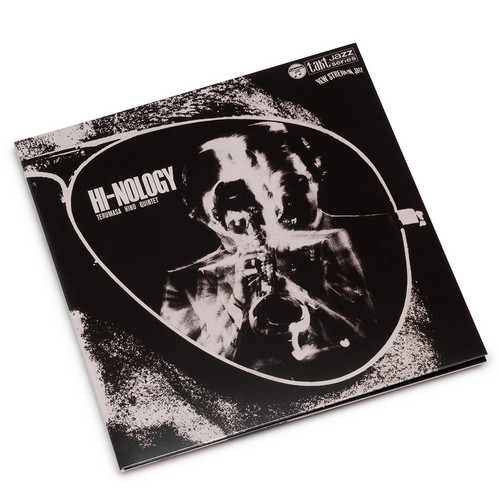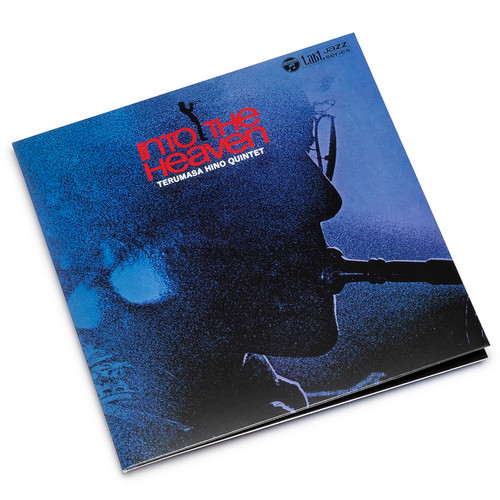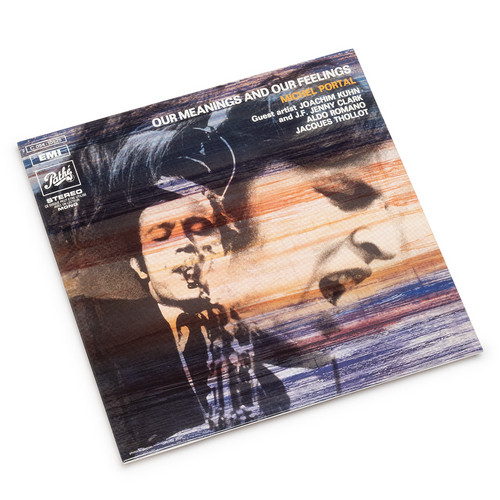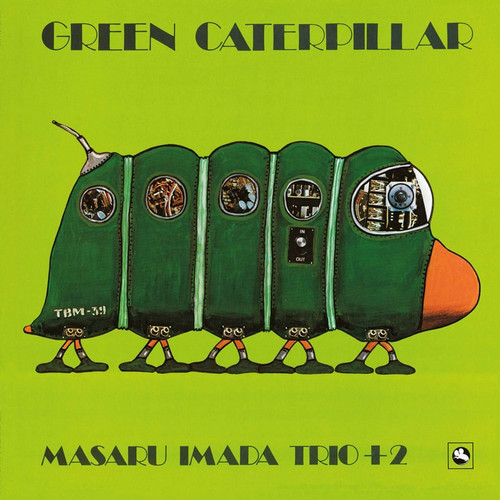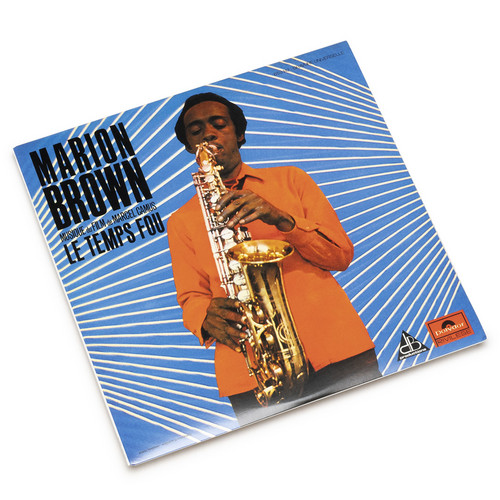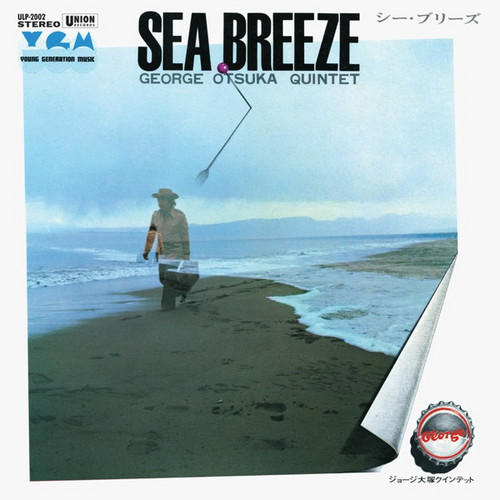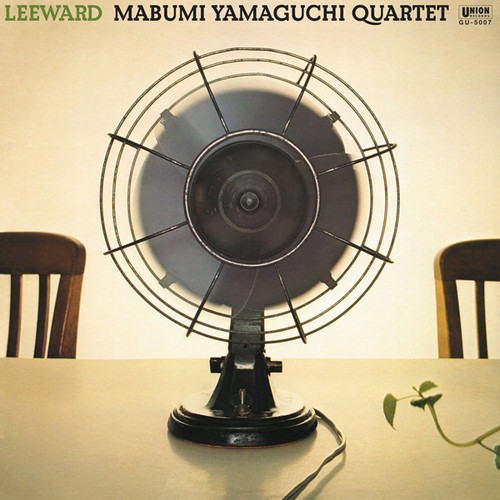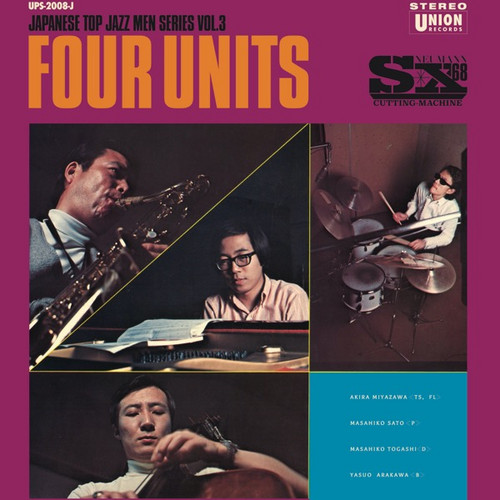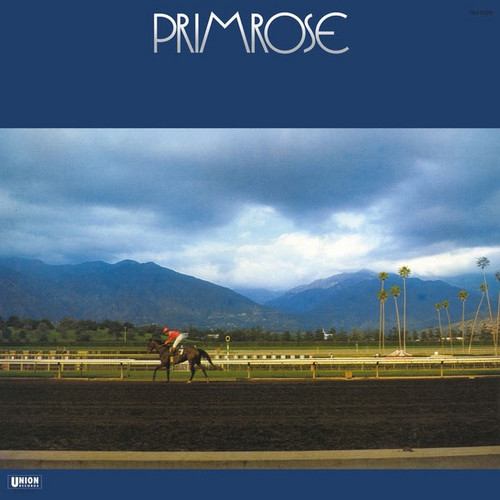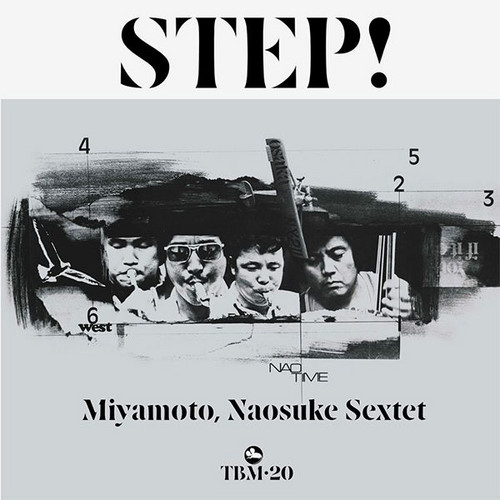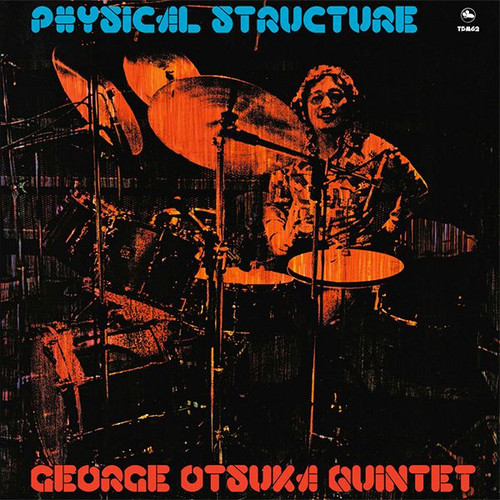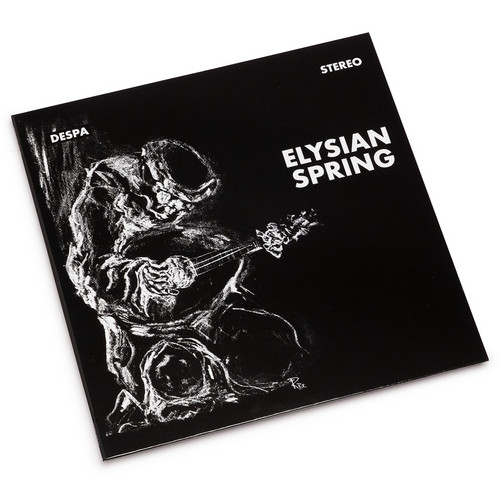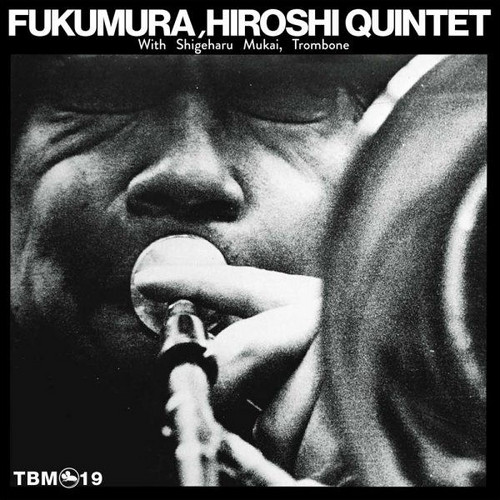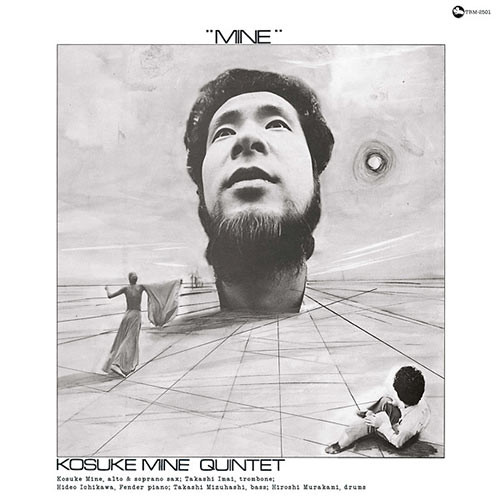★Le Tres Jazz Club
Hi-Nology
Gatefold packaging. Terumasa Hino is undoubtedly one of the most famous Japanese jazzmen. Learning the trumpet at the age of nine, he began his career as a professional musician by playing in the orchestra of an US Army base, before joining Hideo Shiraki's Quintet and then forming his own band in 1964. On Hi-Nology, his brother Motohiko Hino appears on drums, Hiroma Suzuki on electric piano, Kumitsu Inaba on electric bass and Takeru Muraoka on tenor sax. The inspiration from the "electric period…
Into The Heaven
Gatefold packaging. Le Tres Jazz Club can't really say that Japanese jazzmen benefit (not justify in fact) from a great international fame. However, trumpet player Terumasa Hino is an exception, undoubtedly because since the '70s he has collaborated with numerous American musicians: Gary Burton, Roy Haynes, Herbie Hancock -- on Into the Heaven, which was released in 1970, Terumasa Hino is surrounded by the same musicians as on Hi- Nology (LTJC 016LP), released a year earlier: his brother Motohik…
Our Meanings And Our Feelings
Killer! Reissue, originally released in 1969. An iconic French free jazz record recorded at Pathé Marconi Studios. On June 27th, 1969, Michel Portal pushed the door of the Pathé Marconi studios. With him were drummers Jacques Thollot and Aldo Romano, bassist Jean-François Jenny-Clark, and pianist Joachim Kühn. They hadn't rehearsed anything, as if entering the studio to record an album without any plan was something normal. The musicians were obviously very used to playing with each other, as th…
Green Caterpillar
* 2022 Repress. Wow! * Pianist Imada Masaru was 42 years old when he recorded this album in 1975. His adventurous spirit led him to use the electric piano for the first time in a recording, and thanks to his musicianship, he made it sound like he'd been playing the instrument for years. The program opens with the title track, a sophisticated urban funk. Guitarist Kazumi Watanabe plays a big role here. It is followed by a more intricate, fusion-like "Straight Flash." The all-original-composition …
Le Temps Fou - Musique du Film de Marcel Camus
In September 1968, Marion Brown, who moved to Europe two years earlier, recorded the soundtrack of the movie by Marcel Camus entitled 'Le Temps Fou' in the legendary Parisian studio Davout. The movie starring Nino Ferrer was released in 1970 under the title 'Un Été Sauvage'. Soon fallen into oblivion, 'Le Temps Fou' was printed in very few copies by the French arm of Polydor and is almost impossible to find in its original pressing. Finally, more than fifty years later, Le Tres Jazz Club has bro…
Sea Breeze
George Otsuka, sadly passed away in March 2020, was one of Japan’s most renowned jazz drummers. After three records with the George Otsuka Trio in the late part of the 60’s, “Sea Breeze” was released in 1971 on the Union label, his first record in quintet formation and a superb album which showcases the thrilling talent of this band. Included the brilliant jazz-funk track “Sea Breeze” and the astonishing cover of “Fool on the Hill”.
Leeward
** Mabumi Yamaguchi Quartet's outstanding modal jazz outing 'Leeward' from 1978 ** Leeward, released in 1978 on Union Record, is the second album by tenor and soprano saxophonist Mabumi Yamaguchi. Already in quartet formation for his previous album, After The Rain, released two years earlier, Mabumi Yamaguchi changes musicians here to surround himself with Ikuo Sakurai on bass, Hideo Sekine on drums and Ichiro Doi on piano and electric piano. Leeward opens with "Dawn", a long and slow piece led …
Four Units
** Reissued for the first time with its original gatefold sleeve and cover ** Four Units is a kind of Japanese jazz "all star". Recorded in Tokyo on April 1969, it was released the same year on Union records. On the first two long songs that open this album, “Four Units” and “Dull Slumber”, we can feel the influence of the “avant-garde” scene of US jazz (and in particular ESP Disk), without however the music sounding too "free". A whole new vibe on the astonishing cover of "Scarborough Fair", in…
Primrose
Le Tres Jazz Club present a first time vinyl reissue of Hiromasa Suzuki's Primrose, originally released in 1978. Hiromasa Suzuki is a Japanese pianist who began his recording career in the early '70s. Nicknamed "Colgen" in Japan, he is well-known for two amazing records combining jazz-fusion and traditional Japanese instruments (Rock-Joint Biwa and Rock-Joint Cipher on the RCA label), jazz-funk oriented albums (High-Flying and Skip Step Colgen), and the famous record from the Electro Keyboard Or…
Great Harvest
Le Tres Jazz Club presents a reissue of Makoto Terashita's Great Harvest, originally released in 1978. Pianist Makoto Terashita has only released three records under his name during his career. Topology with Harold Land, on the great indie Japanese label Aketa (1984), Ihatov, a trio, with only one of his composition (1997), and Great Harvest. Released in 1978 on the Japanese label Union, Great Harvest is the first record of a then young Makoto Terashita who proudly poses on the back cover of thi…
Step!
Le Très Jazz Club present the first reissue of Naosuke Miyamoto Sextet's Step!, originally released in 1973. A fantastic modal jazz LP, led by Naosuke Myamoto on bass, with Masayoshi Yoneda on the piano and Takashi Goto on saxophone. On One For Trane, the group delivers a strong and amazing moment of spiritual jazz. Also features Kunji Shigi (trumpet), Takashi Furuya and Shoji Nakayama (drums). Produced by Takeshi Jujii. Recorded on August 25, 1973. Le Très Jazz Club keeps on exploring the Three…
Physical Structure
Le Très Jazz Club keeps on exploring Japanese jazz and the Three Blind Mice catalog with the reissue of this amazing 1976 record by drummer George Otsuka. Unavailable for more than forty years, the album is released for the first time outside of Japan. Physical Structure is an amazing jazz-fusion record featuring Fumio Karashima on piano and Fender Rhodes and Shozo Sasaki on tenor sax. Check the surprising and sublime cover of Naima which alone justifies to get this record! Personell list: Georg…
Glass Flowers
Repressed for the first time on LP by Le Très Jazz Club, this fantastic album comes with an insert documenting the story of The Elysian Spring and the recording of this true masterpiece. « Glass flowers », recorded in 1969, and only pressed by 500 copies at the time, is an unclassifiable album, overtaking the jazz outlines. Can words really describe music? It may be hard when music is as fantastic as on this LP. « Glass flowers » is an unclassifiable album, overtaking the jazz outlines, recorded…
Morning Flight
Recorded in 1973, “Morning Flight” by trombonist Hiroshi Fukumura is a stunning modal and spiritual jazz album! Genius work from Japanese trombonist Hiroshi Fukumura – working here at the helm of a twin-trombone group that also features the talents of Shigeharu Mukai – in a style that's filled with soul and free-thinking imagination! The two players work together beautifully here – avoiding any of the cliches of trombone-heavy groups from the past – and instead, using the open-ended Three Blind …
Mine
Le Très Jazz Club present a reissue of Kosuke Mine Quintet's first release, Mine, originally released on Three Blind Mice in 1970. Fuzati (Klub Des Loosers), producer and die-hard crate digger, has teamed up with Modulor to launch the Le Très Jazz Club label, dedicated to jazz vinyl reissues. For the first two releases, Mine, presented here, and Green Caterpillar (LTJC 002LP), Le Très Jazz Club has chosen to celebrate Japan. Japanese jazz is sadly one of the best-kept secrets in music. But, it w…
